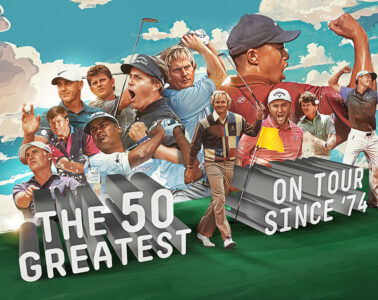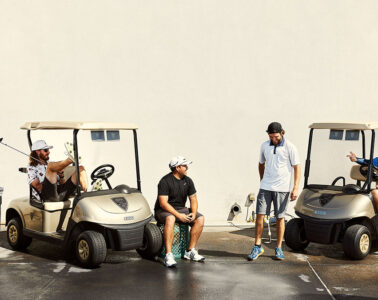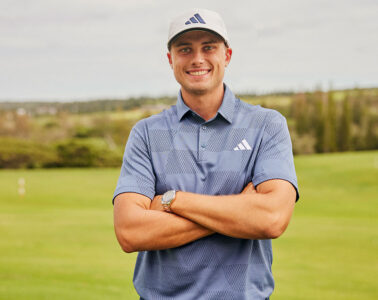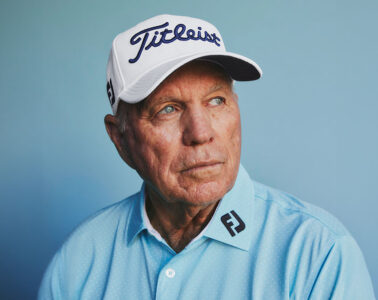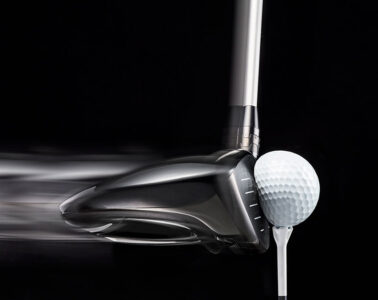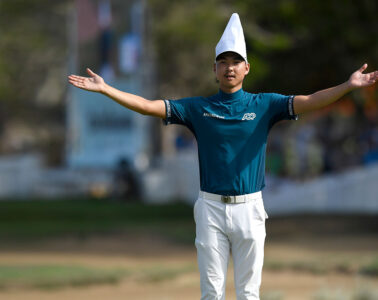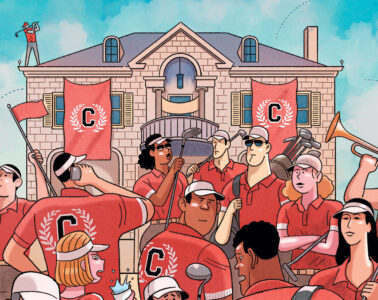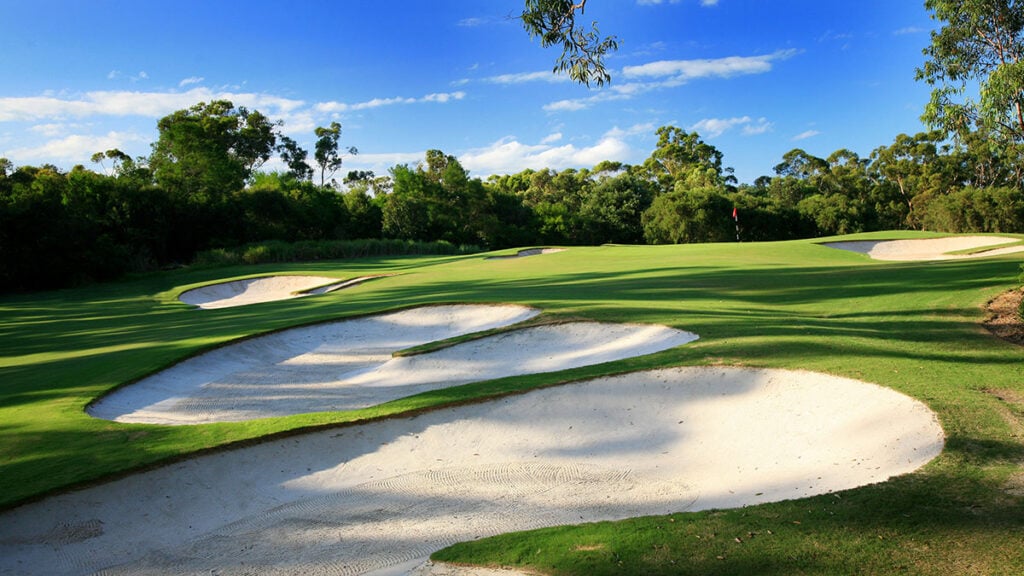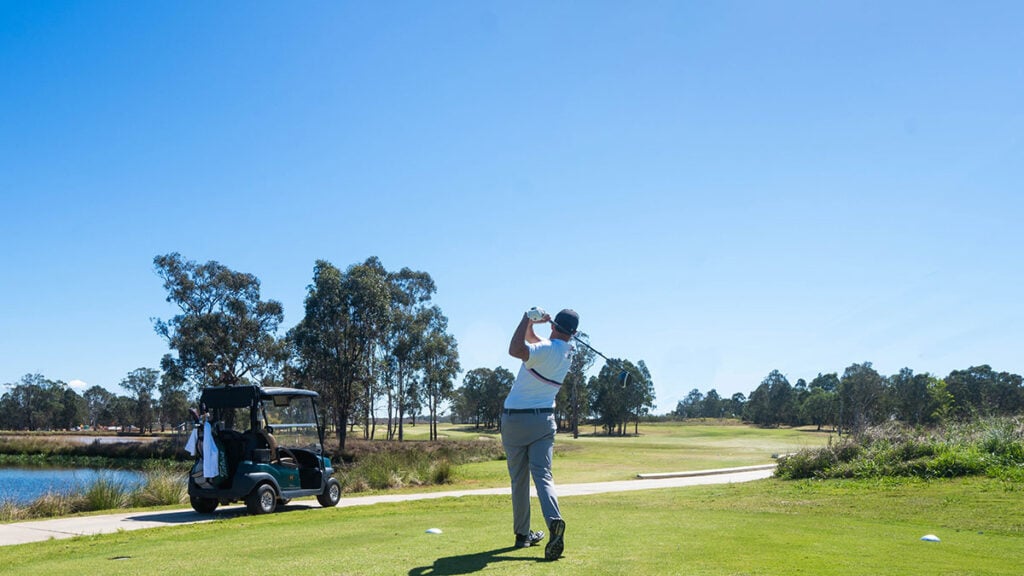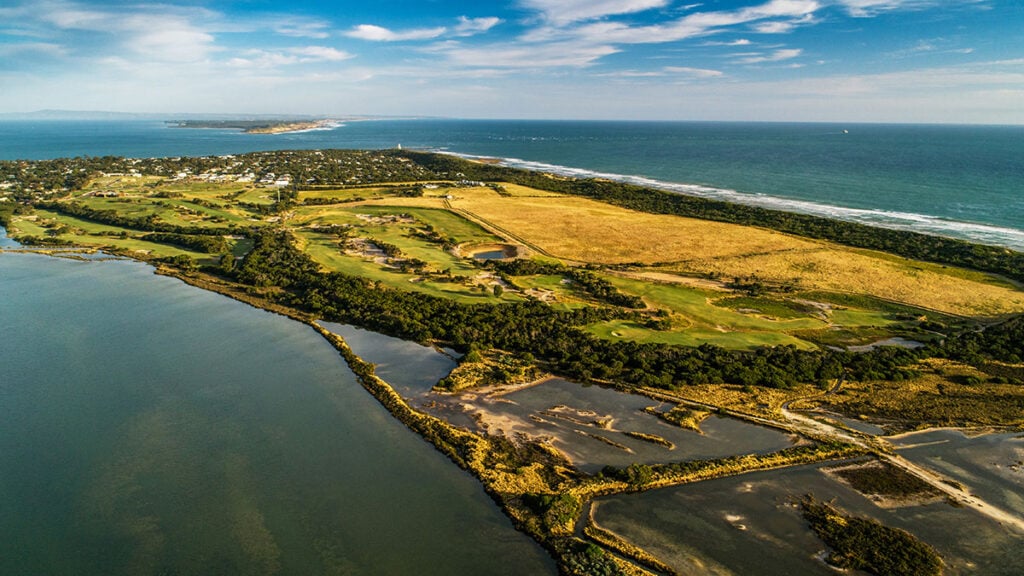Marc Leishman on fighting his way out of a career slump to be rewarded with a spot on the Australian men’s golf team for the Tokyo Olympics – and renewed hope he can win a maiden Major.
For Marc Leishman, the constant reminders of Japan at last October’s Zozo Championship felt like golf was kicking him while he was down.
The Australian star was playing the PGA Tour-sanctioned tournament at famed Sherwood Country Club, outside Los Angeles. The event should have been held in Tokyo but was relocated to the US due to COVID-19.
Mentions of Japan were everywhere. Mainly with signage, obviously. Zozo – Japan’s biggest online shopping retailer – didn’t pay to sponsor the tournament for nothing. Eight Japanese players were in the limited field, several of them sponsor’s invitations. Broadcast coverage laid the Japan connection on thick, too.
But even though the exclusive Sherwood course was at the foot of the Santa Monica Mountains, nothing could shield Leishman from his concerns of failing to qualify for Australia’s golf team for the 2021 Tokyo Olympics.
He was ranked 27th in the world at the time and in line to be one of Australia’s two male representatives. But he didn’t have much faith he’d hold onto the spot, given the way he was playing.
That’s when Leishman hit what he calls the worst shot in the biggest slump of his PGA Tour career. It was at the par-3 sixth at Sherwood, the course’s stunning signature hole over water, during the third round. That hole plays as the 15th during tournaments as the nines are flipped for pros. Leishman hit an iron shot from the tee that was so bad it “missed the green by 20 yards” and led to a quadruple-bogey 7. His long-time coach, Denis McDade, had made an emergency trip to the US from Melbourne. LA was the first stop on a six-week mission to fix Leishman’s swing.
“I’m so glad Denis was there to see that shot, because that was the s–t I had been dealing with for six months before it,” Leishman tells Australian Golf Digest through laughter.
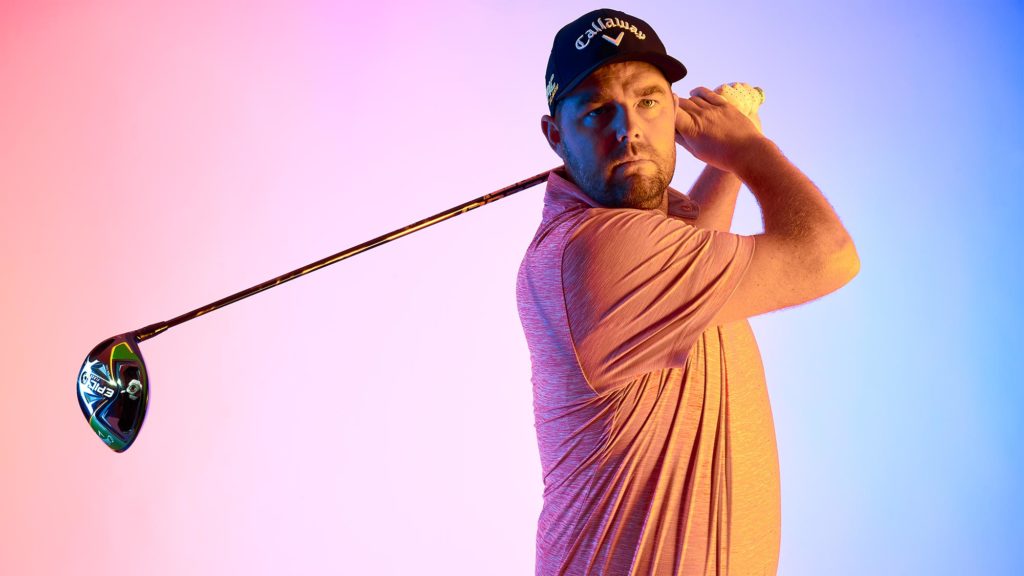
The low point
The shot was embarrassing for Leishman, as was the tie for 70th in the no-cut event. It came only a couple months after the low point of his slump – a finish of last place at the BMW Championship. That was where he shot 80, 78, 79, 73 to finish 34 shots behind Spaniard Jon Rahm, who edged Dustin Johnson in a playoff.
But back to the shot at Sherwood. That moment was when Leishman felt even the strength of his game – supreme iron play – had deserted him.
“Normally my irons are good enough that my bad shots are to 25-30 feet from the hole,” Leishman says from his US home at Virginia Beach, Virginia. “This shot may not have even hit the clubface. It was so bad that it was important Denis was there to see it. Not that it was his fault; it was my fault. But he needed to see how bad I could swing it.
“My game was pretty ordinary there for a while. Sometimes as a pro golfer, you get to the top of your backswing and because we know our swings so well, you say in your head, Oh no. We are good enough to try to fix it on the downswing, and sometimes we can. But other times it makes a bad shot even worse. I just remember being on my downswing on that shot and feeling like, Oh where on earth is this going? Which is not a good feeling.”
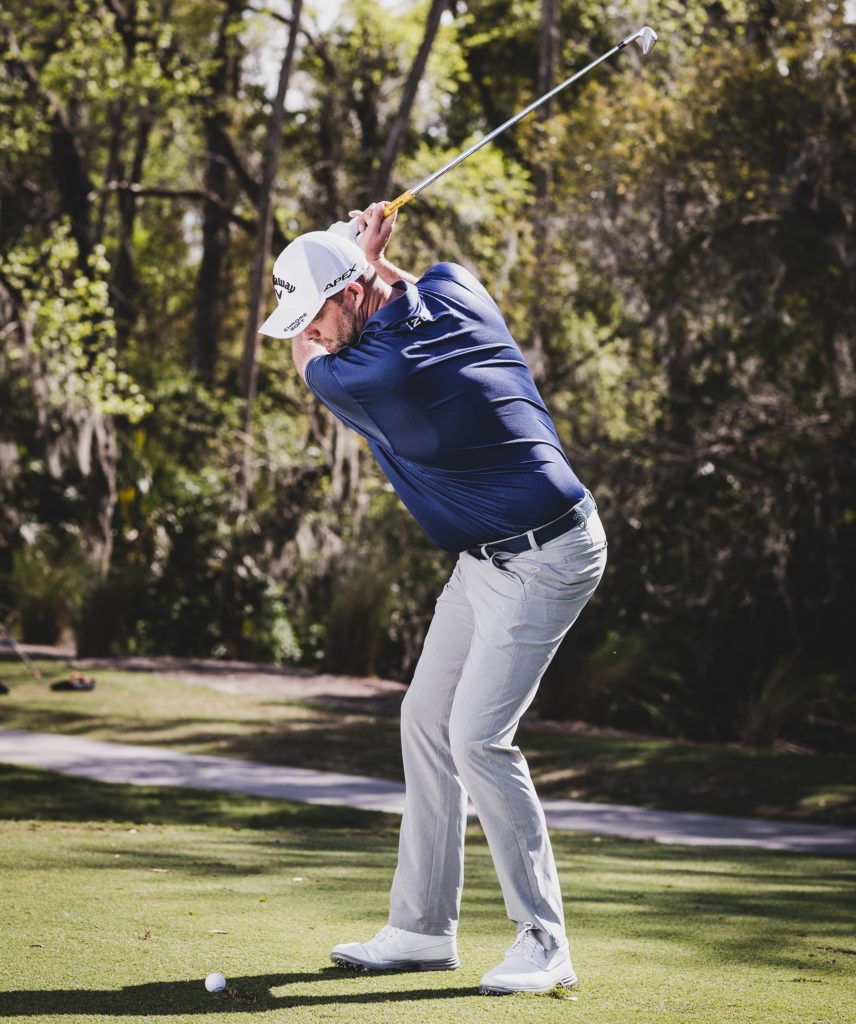
The comeback
After McDade’s recovery mission, Leishman turned a corner at the rescheduled November Masters, where he tied 13th. A couple of months later, he tied for fourth at the Sony Open in Hawaii for his first top-five on the PGA Tour in almost a year.
“For Denis to come over and sacrifice six weeks of his life was something I’ll never forget,” Leishman says. “He put himself at risk, coming from Australia where COVID-19 was almost non-existent to the US where it was rampant.
“He pulled me out of the worst
stretch of golf of my career by far. He missed his birthday and his wedding anniversary while he was quarantining back in Australia. It was a huge deal, what he did.”
This April, a top-five result at the back-to-normal Masters laid the platform for Leishman and Smith to team up to win the Zurich Classic of New Orleans two weeks later. The 37-year-old says he now feels reinvigorated to make a run at the Open Championship at Royal St George’s, before the Olympics and the FedEx Cup Playoffs.
“I feel good with where my game’s at now and that’s incredible considering how I was feeling about it late last year,” he says. “Golf is a weird game. When you’re playing bad, you can never picture playing good and when you’re playing good, you can’t picture how you’d ever have a bad round. I’ve come out of that ‘valley’. It feels good.
“I’m excited for The Open. I’ve never been to Royal St George’s. I love The Open – The Open and the Masters are where it’s at for me. I’m excited and hopefully I can play good. If I can play well on the right week, I could grab that first Major.”
The Games
Just when Leishman was starting to get excited for the Olympics came the cloud of uncertainty over whether the Tokyo Games were actually going ahead at all. Even a couple months out from the opening ceremony, Japan was in the middle of another wave of COVID-19 infections.
But the world No.43 is confident officials will keep athletes safe, should it go ahead, and he is eager to represent Australia alongside world No.28 Smith – even though they won’t play together like they did in New Orleans. Joining them in Tokyo as Australia’s women’s team are Minjee Lee (world No.14) and Hannah Green (No.15)
“It’s individual strokeplay but Cam and I being teammates, of sorts, will still be fun,” Leishman says. “It’ll be one of those weeks where if you don’t finish in the top three – for gold, silver or bronze – your result won’t really matter. I’m sure we’ll have a good week either way. It is very disappointing we can’t go to any other events at the Olympics to watch. It’ll be the golf course and hotel and that’s it, but it is what it is.”
Leishman was among the wave of pros to skip golf’s return to the Olympics in 2016 due to his concerns about the Zika virus. With his wife Audrey having experienced a near-fatal illness in 2015, and the couple planning for a third child at the time, it was too risky.
The Zika virus, combined with a sentiment held by some that golf should not be an Olympic sport, cast a shadow over golf’s Olympic return after an absence of more than 100 years. Many felt golf shouldn’t be in the Olympics because it has its own pinnacle – the Majors. Leishman, a six-time PGA Tour winner, concedes the Olympics will never usurp the four Majors as the most desired trophies, but he believes the lure of winning an Olympic medal will grow on professional golfers.
“If someone offered me a Major win or an Olympic gold medal, it would be a no-brainer; I’d take the Major,” Leishman says. “But to have an opportunity to win an Olympic medal is something I never ever thought about growing up. I never thought I’d get the chance and that’s a pretty special feeling. Not many people can say they’ve competed at an Olympics. There’s no reason why the Aussies can’t win a medal.
“I do think an Olympic medal will become a trophy all golfers want. The Games happen once every four years. You have to look at it as a privilege to represent your country. You can’t take that for granted.”

